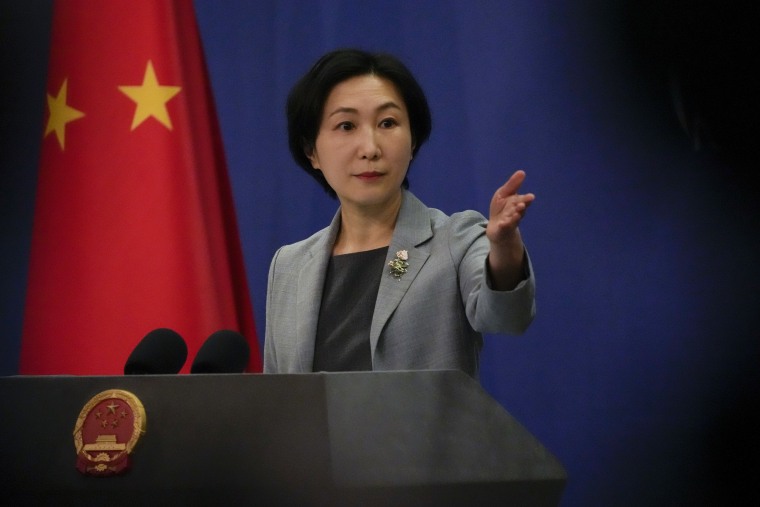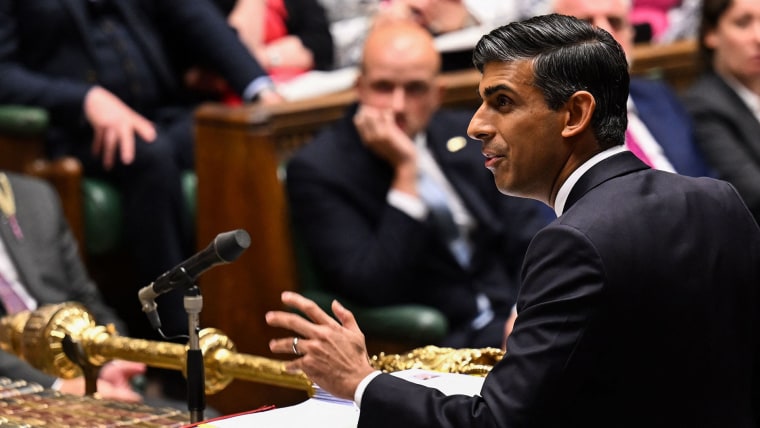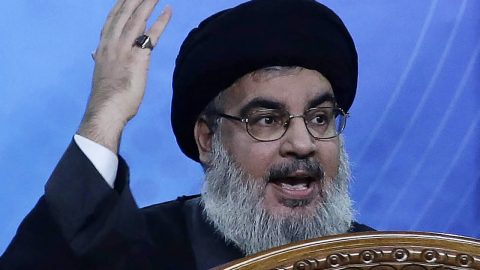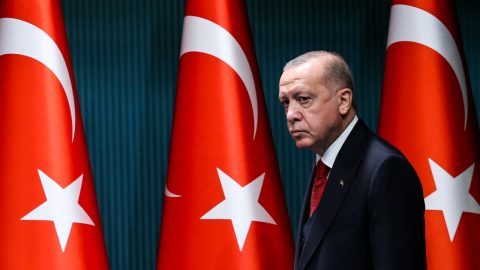LONDON — A parliamentary researcher arrested, two lawmaker candidates withdrawn after security service warnings and a week of anxious whispers about spies in the British corridors of power unlike anything since the Cold War.
Only this time the furor is about China, whose alleged espionage to influence governments and target dissidents abroad is gaining growing attention and criticism in the West.
The revelations rocking Westminster follow Chinese spying allegations in Canada, Australia and elsewhere, raising questions about America’s allies and the balancing act they are trying to navigate between courting and censuring China.
“I have been distinctly concerned about the position of the British government with regard to China and its determination to undermine Western nations,” Iain Duncan Smith, a current lawmaker who was the leader of the Conservative Party from 2001 to 2003, told NBC News.
He and other China hawks see the “potential espionage cell operating in and around Westminster” — as he put it — to be a symptom of a wider malaise: Western countries’ being too soft on Beijing for fear of hurting their own economies.
The China debate simmering in Britain for years exploded last weekend when The Times newspaper reported that a China-focused parliamentary researcher working with lawmakers for the ruling Conservatives had been arrested in March on suspicion of spying for Beijing.
London’s Metropolitan Police said in a statement that two men had been arrested under Section 1 of the Official Secrets Act, legislation relating to espionage, and gathering information “useful to an enemy.”
As is normal at this stage of any investigation in the United Kingdom, police did not name either person or provide any evidence, saying only that one suspect in his 20s was arrested in Edinburgh, Scotland, and that the other, in his 30s, was arrested in Oxfordshire, England. Neither has been charged.
The Times and others have named the researcher, the younger of the two suspects. And while NBC News has not confirmed that detail, his parliamentary job has been discussed in the House of Commons and was referred to in his own statement.
“I am completely innocent,” the man said through lawyers, who did not name him. He criticized the “extravagant news reporting” and said spying “would be against everything I stand for,” because he had spent his career “trying to educate others about the challenge and threats presented” by China.
Meanwhile, Chinese Foreign Affairs Ministry spokesperson Mao Ning called the allegation “entirely groundless” at a daily news conference Monday. “We urge the U.K. to stop spreading disinformation and stop political manipulation and malicious slander against China.”
That has done little to quell the alarm in Britain.
Days after the arrests were revealed, The Times reported that Britain’s domestic intelligence agency, MI5, had warned the Conservative Party that two of its potential candidates for Parliament could be Chinese spies, leading the party to block them from standing.
A junior health minister, Maria Caulfield, said Wednesday on Times Radio that the party had indeed been warned, adding that “swift action was taken.”

The reports are of grave concern to people like Finn Lau, a leading pro-democracy activist from Hong Kong who moved to the U.K. and engages with its political institutions, which he hoped he could trust.
In November, he met with the parliamentary researcher who was arrested on espionage charges, he said.
“The next time that I saw his face and name was three days ago in the newspaper,” Lau said. “I was shocked.”
Hong Kong has offered a bounty of 1 million Hong Kong dollars ($128,000) for information leading to Lau’s arrest. Since he started living in the U.K., he said, he has already been assaulted once, which he believes was politically motivated because the attackers said nothing and made no attempt to rob him.
And the idea that China might have compromised sensitive meetings with trusted personnel in and around Westminster “exposes us to physical harassment and abduction,” he said.
At the heart of it all is a conundrum that is dogging every country in the West: how to continue trading with China (to stop would most likely risk mutual economic calamity) while holding it to account on human rights, espionage and other issues.
Those who want a tougher stance have criticized the U.K. and Europe for being softer on Beijing than Washington is, accusing them of favoring economic ties over national security and ethics.
Duncan Smith, whom China sanctioned in 2021 for speaking out against its alleged human rights abuses, says it’s “almost laughable” that Britain won’t officially label China a “threat” — even after the revelations last week — instead calling it a “systemic challenge.”
“My concern is that Europe is behind America,” he added. “It suggests a desire not to upset the Chinese.”
A report from a British parliamentary committee in July said a lack of clear government strategy had allowed Beijing to penetrate “every sector” of the U.K. economy. And Smith is far from the only member of Prime Minister Rishi Sunak’s own party to criticize him over the issue after the revelations last week.
“I am acutely aware of the particular threat to our open and democratic way of life,” Sunak said. He noted he had raised the issue in meetings with Chinese officials at the G20 summit in India last weekend, calling Beijing’s actions “completely unacceptable.”
asked for comment on the criticism, No. 10 Downing St. pointed to Sunak’s comments in Parliament by way of response.










Recent Comments